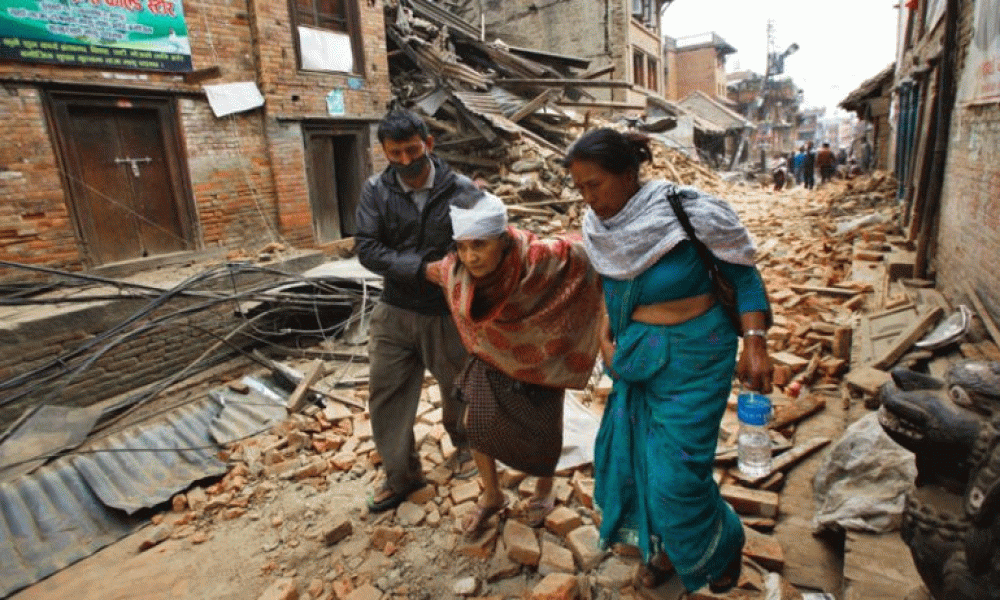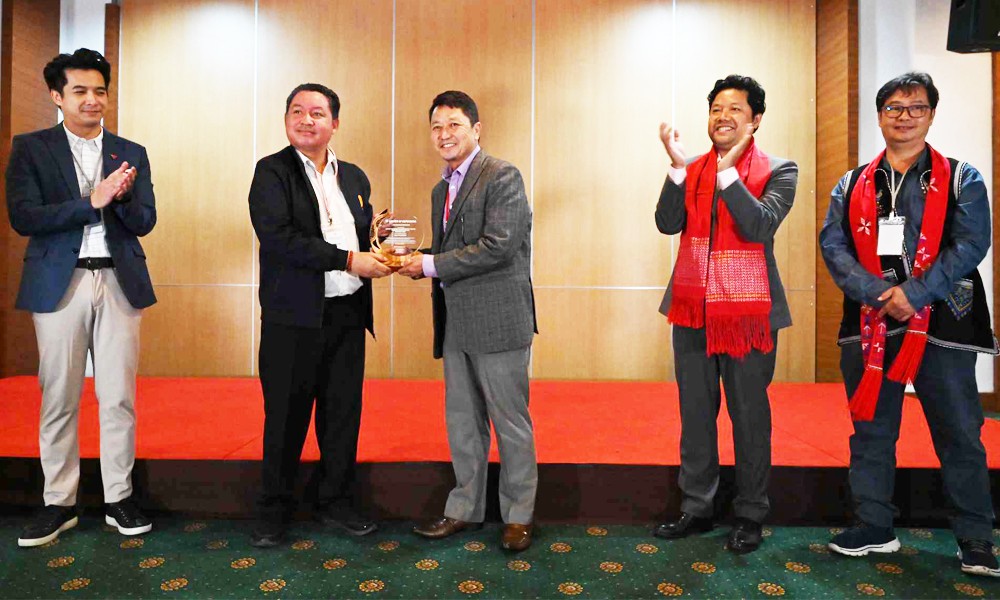A 7.8 magnitude earthquake destroyed nearly 500,000 houses in central Nepal in April 2015, displacing nearly three million people. Although post-earthquake reconstruction has not started yet, the government has given Rs 15,000 for each homeless family.
However, in Lele village of Lalitpur district, just an hour's drive from the capital city of Kathmandu, around 150 Newar families were not entitled to the money distributed by the government for building temporary shelters. This month, the government also decided to distribute Rs 10,000 each for the families still forced to live in temporary shelters to buy warm clothes to protect themselves and their children from the looming Himalayan winter. But again, indigenous Newar families of Lele will have to be deprived of this succor.
Indigenous Newar people living in Lele village do not possess land ownership certificates, and they did not have any official documents to prove that their houses were destroyed by the earthquake. This is a typical case of how indigenous people in Nepal have been deprived of land ownership and thereby other state entitlements.
Keshav Shrestha, a local resident of Lele, says: "We did not get relief because we were not officially registered."
Shrestha says they have been living there for three generations but still they do not have land ownership certificates. Their forefathers did not have awareness to apply for land ownership certificate, and they now face difficulty in proving that the land legally belongs to them.
Shrestha says they have been living there for three generations but still they do not have land ownership certificates. Their forefathers did not have awareness to apply for land ownership certificate, and they now face difficulty in proving that the land legally belongs to them. "We won a legal case from the Patan appellate court, but still we did not get land ownership certificates," he says. "When we go to the land revenue office, officers tell us that they are looking into the matter. But we don't know when we will get land ownership certificates."
"We are landless because our fathers and grand fathers were not aware and educated," says Ganga Shrestha, another local resident of Lele. "When survey teams arrived in the village, our grand fathers and fathers did not know what to do. Only those who were clever enough to apply for land ownership certificates got their dues."
He says his family has been living in Lele for 200 years. "Two years ago I went to claim land ownership certificate, but land revenue officers told me that my land was a government property," he says.









